"Unlocking The Spiritual Essence of Dussehra: The Significance and Sacred Offerings that Empower Your Soul"
Dive into the profound meaning behind Dussehra, the celebration of good over evil, and its deep spiritual roots. Learn about the importance of this auspicious festival, The 9 days of devotion during Navratri, and the powerful offerings made to Goddess Durga. Explore how these traditions inspire us to conquer our inner battles, seek divine blessings, and invite prosperity, wisdom, and protection into our lives.
The story of Dussehra ( also known as Vijayadashami ) centers around the theme of good triumphing over evil, and it is celebrated across India in various forms, most prominently in the epics of the Ramayana and Mahabharata marking Lord Rama's triumph over the demon king Ravana. It also symbolizes the victory of Goddess Durga over the buffalo demon Mahishasura.
The Story from Ramayana:
Dussehra primarily commemorates the victory of Lord Rama over the demon king Ravana.
Ravana, the powerful demon king of Lanka, abducted Sita, Lord Rama's wife. He took her to his kingdom in Lanka, hoping to marry her against her will. Lord Rama, his brother Lakshmana, and the mighty Hanuman set out to rescue Sita. With the help of an army of monkeys ( Vanaras ), led by Hanuman and Sugriva, they crossed the sea to reach Lanka.
A great battle ensued between Lord Rama and Ravan's forces. The ten-headed Ravana was a mighty warrior, but Rama, with his dedication to dharma( righteousness ), fought valiantly.
On the 10th day, known as Vijayadashami, Lord Rama finally defeated Raana by shooting an arrow into his heart, marking the victory of good over evil. This day symbolizes the destruction of evil and the establishment of righteousness. In many parts of India, the effigies of Ravana, along with his brothers Meghnath and Kumbhakaram, are burned to signify the victory of good.
"Unlocking The Spiritual Essence of Dussehra: The Significance and Sacred Offerings that Empower Your Soul"
Dive into the profound meaning behind Dussehra, the celebration of good over evil, and its deep spiritual roots. Learn about the importance of this auspicious festival, The 9 days of devotion during Navratri, and the powerful offerings made to Goddess Durga. Explore how these traditions inspire us to conquer our inner battles, seek divine blessings, and invite prosperity, wisdom, and protection into our lives.
The story of Dussehra ( also known as Vijayadashami ) centers around the theme of good triumphing over evil, and it is celebrated across India in various forms, most prominently in the epics of the Ramayana and Mahabharata marking Lord Rama's triumph over the demon king Ravana. It also symbolizes the victory of Goddess Durga over the buffalo demon Mahishasura.
The Story from Ramayana:
Dussehra primarily commemorates the victory of Lord Rama over the demon king Ravana.
Ravana, the powerful demon king of Lanka, abducted Sita, Lord Rama's wife. He took her to his kingdom in Lanka, hoping to marry her against her will. Lord Rama, his brother Lakshmana, and the mighty Hanuman set out to rescue Sita. With the help of an army of monkeys ( Vanaras ), led by Hanuman and Sugriva, they crossed the sea to reach Lanka.
A great battle ensued between Lord Rama and Ravan's forces. The ten-headed Ravana was a mighty warrior, but Rama, with his dedication to dharma( righteousness ), fought valiantly.
On the 10th day, known as Vijayadashami, Lord Rama finally defeated Raana by shooting an arrow into his heart, marking the victory of good over evil. This day symbolizes the destruction of evil and the establishment of righteousness. In many parts of India, the effigies of Ravana, along with his brothers Meghnath and Kumbhakaram, are burned to signify the victory of good.
The Story of Goddess Durga ( Mahishasura Mardini ):
In another tradition, Dussehra is also linked to the worship of Goddess Durga and her triumph over the buffalo demon Mahishasura.
Mahishasura, a demon able to shape-shift between human and buffalo forms, terrorized the world and defeated the gods. The gods, unable to beat him, sought the help of Goddess Durga.
Durga's creation is the combined energy of the gods formed goddess Durga, who was equipped with weapons from each deity. She rode a lion into battle to confront Mahishasura. Goddess Durga fought Mahishasura for nine days, demonstrating her strength and divine power. On the tenth day, Durga finally defeats Mahishasura by striking him down, symbolizing the triumph of good over evil. This day is celebrated as Vijayadashami, and Durga Puja marks the victory.
Cultural Celebrations:
In North India, large effigies of Ravana, Meghnath, and Kumbhkaran are burned during Ram Leela, reenacting the story of Rama's victory.
In West Bengal, Durga Puja culminates on Vijayadashmi with the immersion of goddess Durga's idols.
In South India, the festival is celebrated as Ayudha Puja, where weapons, tools, and instruments are worshipped.
Overall, Dussehra symbolizes the victory of righteousness and the power of truth, and it is a reminder to overcome the inner evils of ego, greed, and ignorance.
Nine forms Of Maa Durga And Nine Different Naivedyam
In South Indian tradition, the forms of Goddess Durga worshiped during Navratri may have slightly different names and offerings. And the 9 Days of Navratri, leading up to Dussehra carry profound spiritual and life lessons that inspire humans to grow, reflect, and improve. Here's how each day encourages personal growth and the list of names of the goddess for each of the 9 days, along with the suggested offerings:
Day 1
Names : Shailaputri, Parvati Or Devi Shakti
Naivedyam: Katte Pongal, Rice cooked with ghee, Ghee ( Clarified Butter) - Offering pure ghee is believed to bring good health and strength
Life Lesson: Self-Reflection
Shailaputri Goddess symbolizes strength. This inspires us to reflect on our inner resilience and encourages us to remain grounded amidst challenges.
Day 2
Names: Brahmacharini - Uma , Sri Bala Tripura Sundari Devi
Naivedyam: Puliyogare, coconut, Sugar, or Mishri ( Rock Sugar ) - Offering sugar or mishri ensures longevity and happiness
Life Lesson: Discipline and Devotion
Brahmacharini Day teaches the value of self-discipline, patience, and devotion in our personal and spiritual journeys.
Day 3
Names: Chandraghanta - Sri Gayatri Devi
Naivedyam: Coconut Rice, Milk, Milk-Based Sweets - Offering milk or sweets made from milk is believed to bring peace and serenity
Life Lesson: Courage
Chandraghanta represents courage, pushing us to face life's obstacles fearlessly and with determination
Day 4
Names: Kushmanda - Sri Lalita Tripura Sundari Devi
Naivedyam: Rava Kesari, Malpua ( Sweet Pancake ) - Offering malpua is said to enhance intellectual ability and decision-making power.
Life Lessons: Creativity and Positivity
Kushmanda's goddess inspires us to foster positivity and creativity, reminding us that we have the power to create our own happiness.
Day 5
Names: Skandamata - Sri Annapurna Devi
Naivedyam: Allam Garelu, Bananas - Offering bananas is believed to promote good health and happiness
Life Lessons: Nurturing and Compassion
Skandamata, the nurturing mother, teaches us the importance of compassion and caring for others, reminding us of the strength found in empathy.
Day 6
Names: Katyayani - Sri Mahalakshmi Devi
Naivedyam: Paramannam, Honey - Offering honey is believed to keep the devotee sweet and pleasant, and bring charm to their personality
Life Lessons: Determination and Justice
Katyayani Day signifies the importance of determination and the pursuit of justice, encouraging us to fight against injustice and inequality.
Day 7
Names: Kalaratri - Sri Saraswati Dev
Naivedyam: Daddojanam, jaggery ( Gur ) - Offering jaggery is said to remove sorrow and attract positivity.
Life Lessons: Destruction Of Evil
Kalaratri teaches us to comfort and destroy the negative energies within us- fear, greed, and ego- symbolizing inner purification.
Day 8
Names : Mahagauri - Sri Durga Devi
Naivedyam: Kadambam, Coconut or coconut-based sweets - Offering coconut helps to bring prosperity and good fortune.
Life Lessons: Purity and Peace
Mahagauri Day encourages inner purity and peace, reminding us to seed clarity and calmness in our thoughts and actions.
Day 9
Names: Siddidatri - Sri Mahishasuramardhini Devi
Naivedyam: Chakkara Pongal, Sesame seeds, Or Sesame Sweets - Offering sesame seeds brings protection from negative energies and good luck.
Life Lessons: Wisdom and Fulfillment
Siddhidatri inspires us to seek wisdom and personal fulfillment, urging us to realize our potential and remain humble in success.
Day 1 - Devi Sailaputri -- Sri Swarnakavacha Durgadev -- Katte Pongal
" Savor the Festive Flavors: Traditional Katte Pongal Recipe for Auspicious Celebrations"
Experience the divine taste of Katte Pongal and celebrate the essence of the South Indian Festival With this timeless dish. A traditional blend of rice and moong dal is often served as Prasadam in temples. This aromatic, spicy, and hearty dish combines earthly lentils with starchy rice, creating the perfect bowl of comfort food. Whether you're celebrating a festival or craving something soulful, this recipe brings the sacred flavors of tradition right to your table!
Day 2 -- Devi Brahmacharini -- Sri Bala Tripura Sundari Devi -- Puliyogare
"Puliyogare: The Tangy Temple Prasadam Bursting with Flavors"
Discover the irresistible taste of Puliyogare, a beloved temple prasad known for its tangy tamarind-infused rice. This classic dish, tempered with aromatic chana and urad dal, offers a perfect balance of crunch and zest. A sacred offering that's packed with bold flavors, Puliyogare brings the divine touch of traditional temple food to your plate, making it a must-try for every festive occasion or comforting meal!
" Irresistible Coconut Rice: Temple Prasad Packed with Comforting Flavors, Tradition and Divine Aroma"
Get ready to indulge in the divine taste of Temple Prasad Coconut Rice, a perfect blend of crunchy dals, fragrant curry leaves, and the rich essence of coconut. Infused with coconut milk and mild spices, this comforting dish brings the sacred flavors of tradition to your kitchen. Elevate your festive meals with the soulful taste of these divine offerings!
Day 4 -- Devi Kusamanda -- Sri Lalita Tripura Sundari Devi -- Rava Kesari
"Rava Kesari: The Beloved Temple Prasad for Every Occasion"
Indulge in the smooth, aromatic, and deliciously fluffy Rava Kesari, a cherished temple prasad perfect for festivals, celebrations, or even a cozy weekend treat. This classic sweet dish, rich in flavor and tradition, is a must-try for any special moment. Elevate your dessert game with this irresistible delight!
"Allam Garelu: Crispy Urad Dal Fritters with a Ginger-Spice Kick!"
Savor the irresistible crunch of Allam Garelu, deep-fried urad dal fritters infused with the mild heat of crushed pepper and finely chopped ginger. Perfectly paired with hot sambhar and coconut chutney, this South Indian snack promises a wholesome and flavorful meal in no time. Enjoy the ultimate comfort food straight from the heart of Southern India!
"Paramannam: Divine Rice Payasam, a Festive Pudding Of Tradition and Flavor"
Delight in the rich, creamy goodness of Paramannam, a sacred rice pudding made with milk, jaggery, and a crunchy tempering of dry fruits. Also known as Annam Payasam or Bellam Paramannam, this sweet treat is a staple during festivals, offered as Naivedyam to the gods. Elevate your celebrations with the comforting flavors of this traditional dessert!
Day 7 -- Devi Kalaratri -- Sri Saraswati Dev -- Daddojanam
Relish the comforting taste of Temple-Style Curd Rice, also known as Daddojanam or Bagalabath, a sacred prasad served to devotees. This creamy, tempered curd rice is infused with assorted spices, creating a flavorful and soul-sooting dish that's perfect for any occasion. Experience the authentic taste of tradition with every bite!
Day 8 -- Devi Mahagauri -- Sri Durga Devi -- kadambam
"Kadamba Sadan: A Nutritious South Indian Delight of Tamarind, Dal, and Veggies"
Discover the wholesome goodness of Kadamba Sadan, a simple yet flavorful South Indian recipe. This nutritious dish combines rice, tamarind, dal, and vegetables with a fragrant temper, creating a comforting and healthy meal. Packed with rich flavors and nutrition, Kadambam is the perfect choice for a balanced, satisfying meal!
Day 9 -- Devi Siddidatri -- Sri Mahishasuramardhini Devi -- Chakkara Pongal
" Chakkara Pongal: A Traditional Delight for South India's Grandest Festival"
Celebrate South India's biggest festival with the rich and flavorful Sweet Pongal, a cherished traditional dish, made with rice, jaggery, and ghee, this festive treat is a must-have during special occasions, offering a sweet and satisfying taste of tradition. Experience the joy of the festival with every delicious bite!





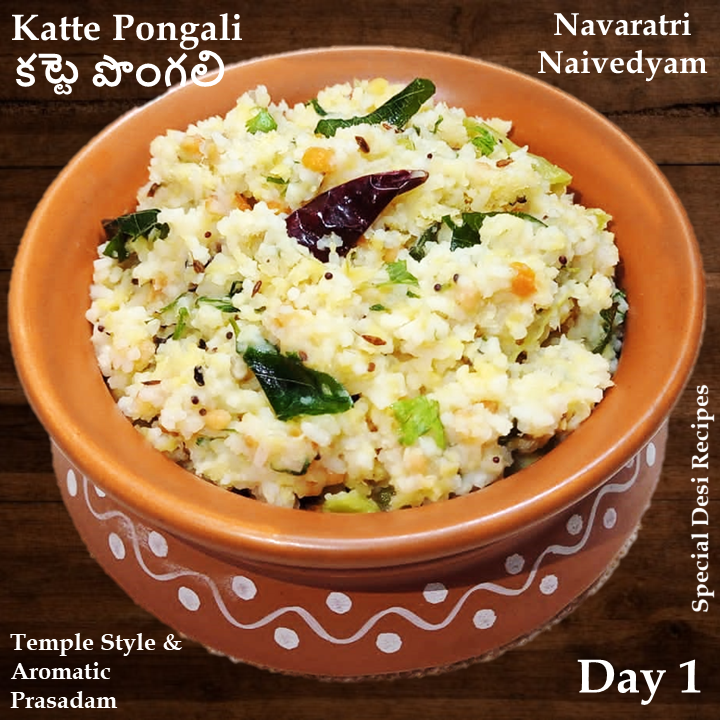
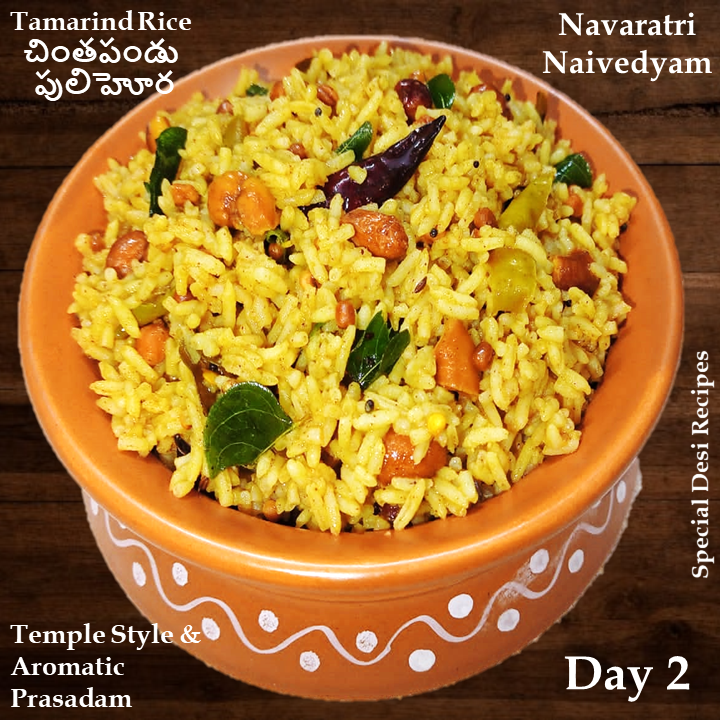

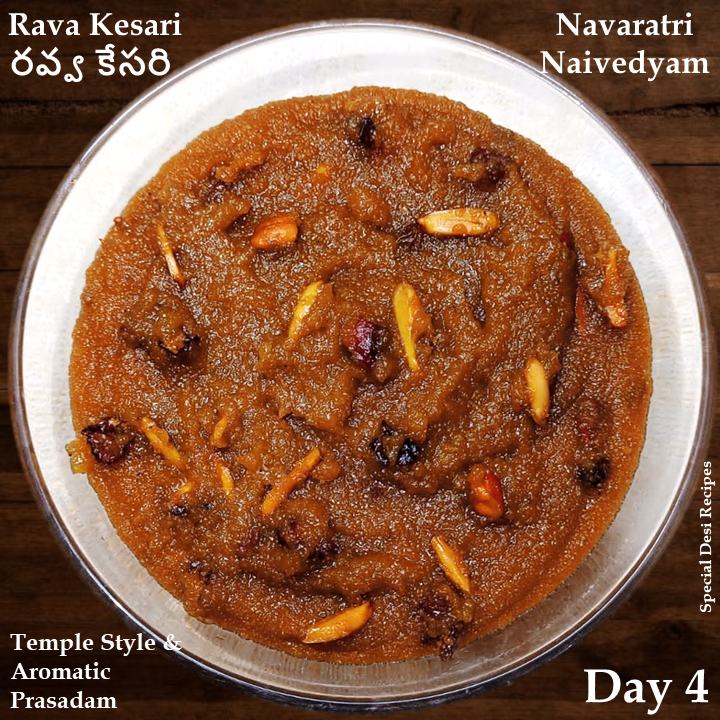


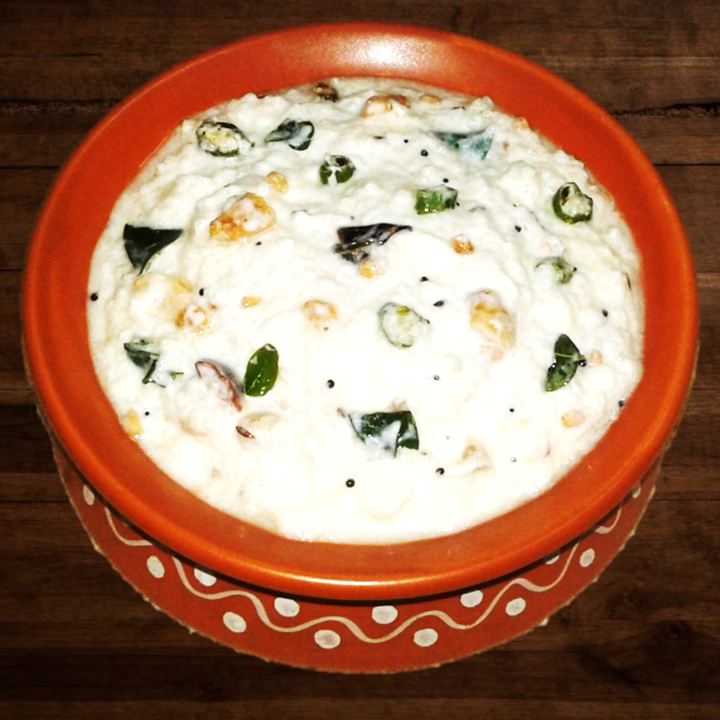
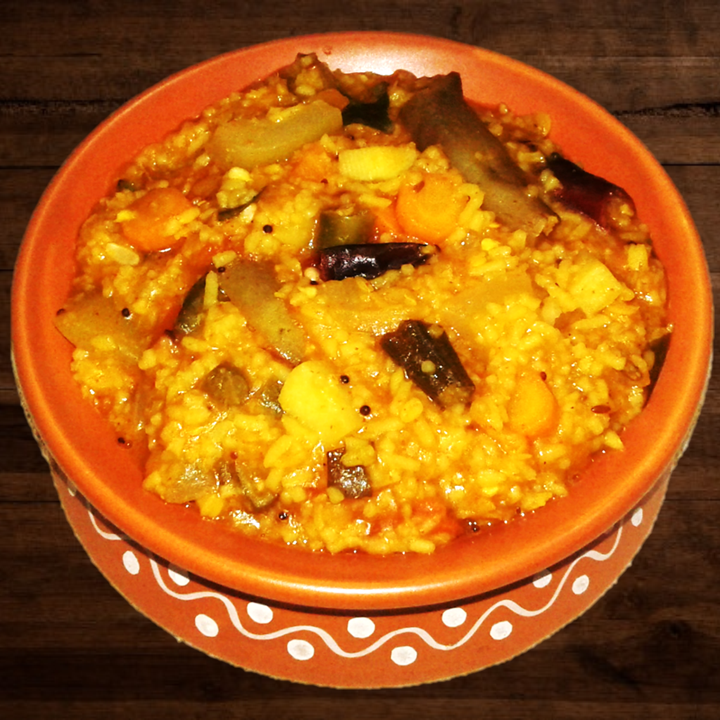
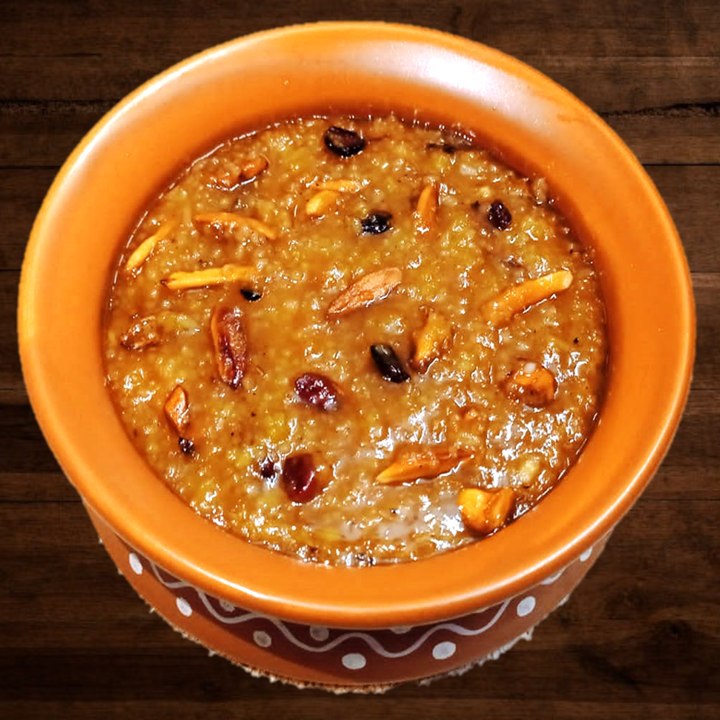










No comments:
Post a Comment